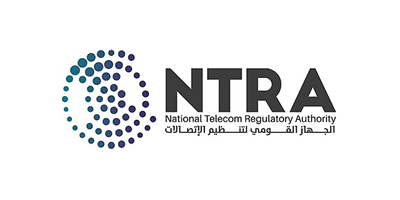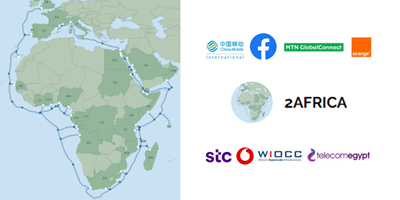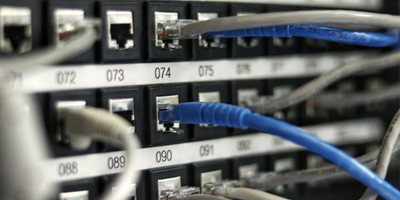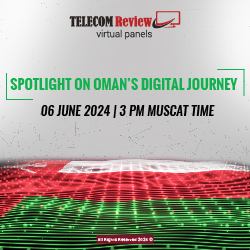The National Telecom Regulatory Authority of Egypt (NTRA) approved a regulatory framework to establish data centers as well as provide cloud computing services in the country.

Wholesale and Capacity
Sparkle to build Blue and Raman submarine cable systems with Google
Sparkle announces its collaboration with Google to build the Blue and Raman submarine cable systems that set a new reference in terms of diversification, scalability, and latency to communication routes between Europe, Africa, the Middle East, and South Asia.
New branches added to 2Africa subsea cable system
The 2Africa consortium, comprised of China Mobile International, Facebook, MTN GlobalConnect, Orange, stc, Telecom Egypt, Vodafone, and WIOCC, announced the addition of four new branches to the 2Africa subsea cable system.
PCCW Global launches on-demand services to leading IX platform through Console Connect
PCCW Global has launched a new IX-as-a-Service (IXaaS) that makes it easier, faster and more flexible to order, provision and pay for IX services from some of the world’s largest Internet Exchanges (IXs).
Hyperscalers touched 100% CAGR in global bandwidth deployments across Middle East in 4 years
The share of the Middle East’s international bandwidth deployed by hyperscalers rose to 7% by the end of 2020—a 100% compound annual growth rate (CAGR) since 2016, according to TeleGeography, a global telecommunications market research and consulting firm.
PCCW Global to execute new submarine cable for Malta's new connectivity
GO announced a €25 million investment in LaValette, a new submarine cable that directly connects Malta to France, Egypt, and beyond, and will be a part of PCCW Global’s Pakistan East Africa Connecting Europe (PEACE) project.
GBI ramps up connectivity via new Oman data centre hub
Gulf Bridge International (GBI), a global cloud, connectivity and content enabler, and Equinix, the world’s digital infrastructure company are collaborating and establishing a new deployment for GBI at the Equinix data center in Oman.
MTN GlobalConnect and CAMTEL accelerate Cameroon’s fibre network and digital journey
MTN GlobalConnect and CAMTEL have joined forces to establish a strategic partnership that will see the commercialisation of four submarine cables in the West and Central sub-region of Africa. The partnership will improve connectivity in Cameroon and support the increasing demand for internet capacity.
CRA approves wholesale charges for telecom networks from 2021-2023
The Communications Regulatory Authority (CRA) issued an order to direct Ooredoo Qatar and Vodafone Qatar to implement specific wholesale charges for 2021, 2022, and 2023; aiming to maintain a competitive, fair, and developing telecom sector in Qatar.
Number of African IXPs increased by 58%, says report
From 19 in 2012 to 46 in 2020, the number of African internet exchange points (IXPs) has increased by 58 percent over the past eight years. With more than half of the countries in the region having an IXP, the most developed internet ecosystem is in South Africa with 80 percent of localized traffic, followed by Kenya and Nigeria with 70 percent each.


















